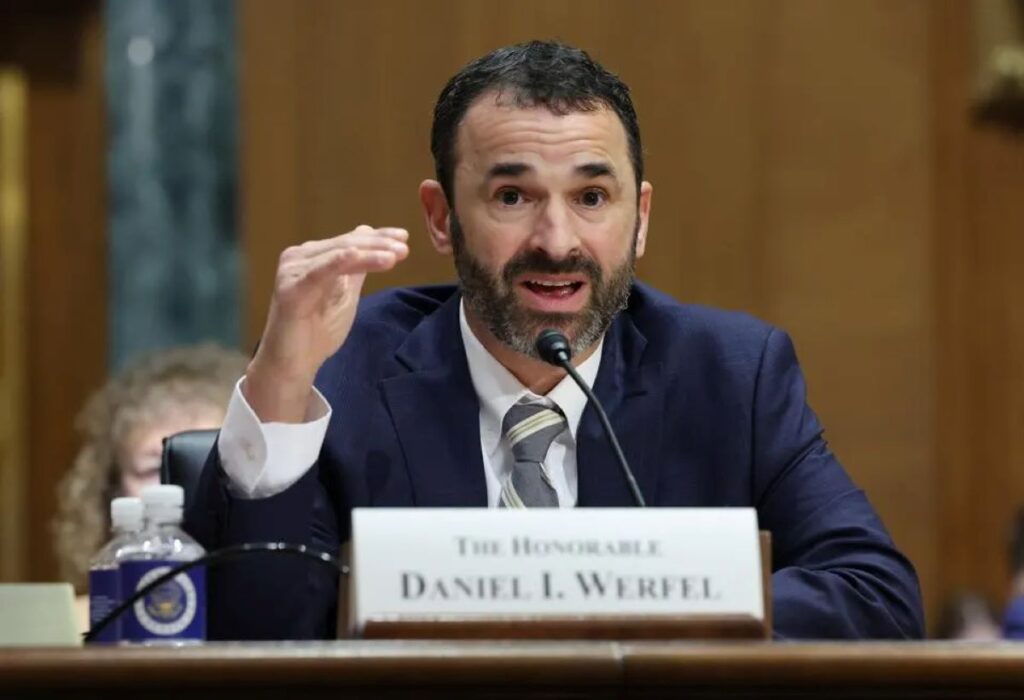
For years, the Internal Revenue Service (IRS) grappled with insufficient funding to tackle the tax evasion tactics of America’s wealthiest individuals, according to Daniel Werfel, the agency’s commissioner.
However, in a recent interview, Werfel revealed a significant shift: the government has now set its sights on wealthy tax dodgers, deploying artificial intelligence (AI) to bolster its crackdown efforts.
During the interview with CNBC, Werfel highlighted the impact of previous budget constraints on the agency’s ability to scrutinize complex tax returns. He emphasized that while the IRS faced challenges deciphering intricate tax filings, it maintained adequate capacity for more straightforward returns.
With the recent allocation of funds through the Inflation Reduction Act, Werfel noted a resurgence in the IRS’s ability to navigate more challenging tax cases. “When we were underfunded, we lost the capacity to figure out what was happening with complex tax returns. We didn’t lose that much capacity on simple returns,” Werfel told CNBC.
ALSO READ: How Does the Proposed California Wealth Tax Work?
Werfel underscored the substantial financial losses incurred by the government due to the non-compliance of “millionaires and billionaires” who either fail to file their taxes or underreport their income.
He estimated the annual loss at $150 billion and emphasized the importance of refocusing enforcement efforts on high-income individuals, typically those earning over $400,000 annually. This renewed emphasis, Werfel argued, would rectify a historical imbalance, as the IRS previously directed more audits towards low- and middle-income filers.
Moreover, Werfel lamented the lackluster audit rates across the board before enacting the Inflation Reduction Act, characterizing them as “anemic.” However, recent initiatives have yielded promising results, such as compiling a list of 1,600 high-income individuals with tax liabilities and assigning IRS officials to investigate 900 cases. The agency recovered over $482 million in unpaid taxes, with further collections anticipated.
POLL — Should the Government Increase Taxes on the Wealthy To Reduce Economic Inequality?
In combating sophisticated tax avoidance schemes, Werfel acknowledged the challenges posed by intricate financial structures employed by companies and individuals. He described the landscape of tax evasion as increasingly complex, with strategies involving convoluted partnerships, subsidiaries, and multi-jurisdictional financial transactions.
Werfel stressed the need for enhanced scrutiny to prevent income-shielding tactics, both legal and illegal. The IRS has embraced AI technology to bolster enforcement capabilities, likening it to “night vision goggles” that swiftly detect discrepancies within vast volumes of tax filings.
Leveraging publicly available data, such as private jet flight records, the agency aims to identify instances where corporate jets are used for personal purposes by executives. This approach enables the IRS to investigate discrepancies in the reporting of perks and benefits.
ALSO READ: TikToker Claims Women Shouldn’t Have to Pay Taxes in Viral Video
During the interview, CNBC host Robert Frank raised hypothetical scenarios to explore the nuances of tax compliance among affluent individuals. Werfel addressed concerns regarding business deductions for luxury expenses, emphasizing the importance of adhering to established tax regulations.
The IRS’s adoption of AI and intensified focus on high-income tax evaders mark a new chapter in enforcement efforts. The agency seeks to enhance fairness and compliance within the tax system by leveraging technology and strategic targeting.
You Might Also Like:
Court Sentences Alaska Woman to 99 Years for Killing Friend in $9 Million Murder-for-Hire Scheme
Denver Grapples With Budget Cuts as Recreational Centers Reduce Hours Amid Migrant Crisis
School District Pulls Substitute Teacher From Elementary Over Inappropriate Image Allegations
Gun Kit Manufacturer to Pay Baltimore $1.2 Million in Settlement Over Increasing Violence
Judge Sentences Chicago Man to Life in Prison for Killing His Kids
